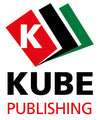Dear Mother holding space in new destinations…
Dear Mother – Letters from the Heart is a collection of letters about the contemporary challenges for Muslim mothers. It was written for a Muslim audience.
The 30 fictional letters are held together by a overt faith framework with many references to our Islamic heritage and some inclusion of cultures.
Given this genre, it has been a welcome and unexpected surprise that Dear Mother has been read and discussed, outside the Muslim readership it was intended for. This is welcome because firstly it’s a rare opportunity for non- Muslim readers to hear directly, and unfiltered from the lives of Muslim women going through a range of challenges.
What exists via the media and popular culture are damaging stereotypes about Muslim mothers, spinning circles of narratives around the spindle of oppression, veils and needing to be ‘saved’ – hardly anything to do with the reality we as Muslim women live. Secondly, I welcomed this interest because maternal studies, as an academic field is dominated by scholarship, activism and arts contributions from a Western, usually middle class, secular lens.
There is a critical need for female voices from the global majority, living at the intersection of faith, motherhood and structural inequalities. To have Dear Mother take up space in this context was something I embraced with both hands, eager to contribute alternative narratives and experiences. Below are two occasions where Dear Mother had was part of valuable interactions in these spaces:
1. IAMAS Conference 2024: Mothering and Motherhood – Past, Present and Future at Boston University.
The title of my paper was: ‘Birthing a Creative Space for Motherhood Inclusive of Faith – The Anomaly of Being Present as Mothers and Invisible in Literature’. This online presentation was about why Dear Mother came into existence, namely because the genre of literature by mothers about motherhood, rarely centers the faith identity and the implications on contemporary mothering. Going through select passages from the book and ‘normalising’ the myriad experiences that Muslim mothers go to, certainly connected with attendees, judging from the comments and questions.
My experience of attending this conference beyond talking about Dear Mother -albeit virtually for three days - reinforced the uncontestable need to participate in these spaces. Discussions ranged from the representation of motherhood in the arts globally, to mothering with disabilities and also the future of maternal studies academically as a discipline.
In the world of academia, Maternal Studies is an interdisciplinary field that explores the experiences, roles, and representations of motherhood and maternal identities. It examines how motherhood intersects with issues such as race, gender, class, and culture, drawing from feminist theory, sociology, psychology, and literature.
The discipline critically analyses how motherhood is socially constructed and experienced differently across various contexts. Founded by Andrea O’Reilly, She founded the Motherhood Initiative for Research and Community Involvement (MIRCI) and the Journal of the Motherhood Initiative bring together O'Reilly's work, including her influential book "Matricentric Feminism", advocates for the recognition of motherhood as a central aspect of feminist theory. Given that motherhood is a central role in Muslim culture from all areas of the globe, participating in this discourse is essential – hence my work.
While the physical image of 'Muslim women' has been endlessly dissected from a visual perspective, seeing one or two of us visibly present on screens in university halls and classrooms highlighted the influential potential of our voices and work when we step into new spaces.
Putting Muslim motherhood literally on the conference agenda was a first for Dear Mother, and more exchanges of knowledge like this will be sought!
2. The ‘Being You Network’ and Race Equality Network at Buckinghamshire New University
I was invited to talk about Dear Mother in spring term for one of the ‘Talking to the Author’ events earlier this year, in a series which included Nadiene Asbali and Dr Sofia Rehman on other weeks discussing their books. Once again, I had never anticipated talking to an audience of university staff and academics about Dear Mother.
Our discussion, expertly led by a senior lecturer who had read the entire book thoroughly, with several insights he found which developed his perceptions about Islam, Muslim women and family life.
The variety of subjects covered in Dear Mother such as Tayyib food, holistic wellness, our identity and language, were key talking points during the virtual event. Another subject that the attendees commented on was perinatal practices across Muslim lands. Bucks New University has a well established Nursing and Midwifery courses so talking about the letters which deal with cultural traditions and faith perspectives about pre and post birth, were enthusiastically embraced.
The author event was also a good opportunity to discuss the creative side to writing and choosing the letter format to convey the subject matter.
Along with a critical review in The Dawn these spaces have taught me that there is an appetite for hearing authentic, contemporary narratives about motherhood well beyond the obvious readership. Looking forward to more dialogue and making sure, in the words of Chambers, Professor of Global Literature, Dear Mother:
‘ensures that Muslim mothers are heard in a broader conversation that often ignores or belittles their voices.’


